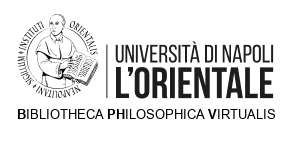Homélie sur le prologue de Jean / Jean Scot, introduction, texte critique, traduction et notes de Edouard Jeauneau, Cerf, Paris 1969
Dopo una breve introduzione alla vita e all'opera dell'Eriugena, Jeauneau descrive le fonti e i contenuti dell'omelia e fornisce un'ampia bibliografia.
Egli dà precise informazioni sulla relativa edizione critica dei manoscritti, con una traduzione ricca di spunti di riflessione e undici appendici concernenti questioni di carattere filologico e dottrinale.
------
After a brief introduction to the life and work of Eriugena, Jeauneau describes the sources and content of the homily and provides an extensive bibliography.
He gives precise informations on related critical edition of manuscripts, with a translation full of food for thought and eleven appendices concerning philological and doctrinal issues.
Edouard Jeauneau
Edouard Jeauneau è stato un monaco e uno studioso di filosofia della natura nel Medioevo, oltre che di esegesi biblica.
Ha curato l'edizione critica del Periphyseon e di altri commentari di Giovanni Eriugena (Turnhout 2007), quella del Commento al Timeo di Guglielmo di Conches e ha scritto numerosi articoli e saggi riguardanti l'eriugenismo e il rapporto tra scienza, filosofia e religione in epoca medievale.
------
Edouard Jeauneau was a monk and a scholar of medieval natural philosophy, as well as of biblical exegesis.
He edited the critical edition of the Periphyseon and other commentaries of John Eriugena (Turnhout 2007) and of the Commentary on the Timaeus of William of Conches, and he wrote numerous articles and essays about the eriugenism and the relationship between science, philosophy and religion in the Middle Ages.
Giovanni (Scoto) Eriugena - John (Scot) Eriugena
Giovanni (Scoto) Eriugena (secolo IX) è stato teologo e filosofo, maestro della "Schola Palatina" di Parigi. Ha tradotto in latino il "corpus" di scritti dello pseudo-Dionigi, alcune opere di Massimo il Confessore, di Gregorio di Nissa e di Epifanio.
Uno dei capisaldi del suo pensiero è la nozione di natura, divisa concettualmente in quattro specie: natura che crea e non è creata (Dio), natura che crea ed è creata (le idee presenti in Dio, coeterne, il Logos), natura che non crea ed è creata (il mondo e l'uomo), la natura che non crea e non è creata (il ritorno alle cause primordiali in senso figurato).
------
John (Scot) Eriugena (ninth century) was a theologian and philosopher, master of the "Schola Palatina" in Paris. He translated the "corpus" of the writings of Pseudo-Dionysius into Latin, and some books of Maximus the Confessor, Gregory of Nyssa and Epiphanius.
One of the cornerstones of his thought is the notion of nature, conceptually divided into four species: nature which creates and is not created (God), nature which creates and is created (the ideas present in God, co-eternal, the Logos), which does not create and is created (the world and man), which does not create and is not created (the return to the primordial causes figuratively).
Shelfmark: F.L. 0294


